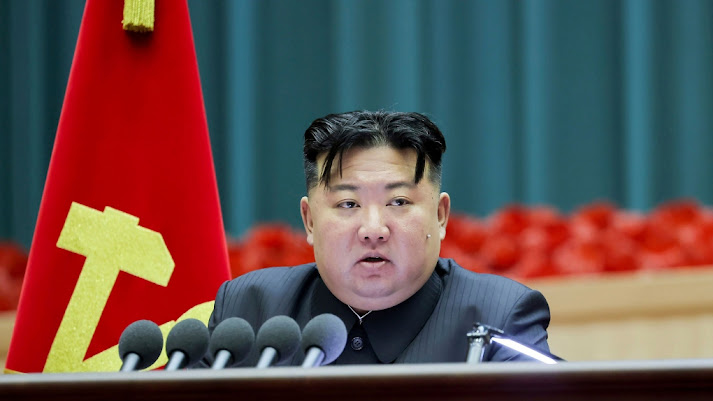JakartHerald.com - The Chinese government has explained the "abstain" stance taken in the UN Security Council vote to adopt a new resolution on expanding the mandate of the expert panel overseeing the annual sanctions enforcement against North Korea.
"The resolution was forced to a vote, and Security Council members should express their opinions when sponsoring countries still have time to consult.
This situation is not conducive to maintaining the authority of the Security Council," said Foreign Ministry Spokesperson Lin Jian on Friday (29/3) as accessed on the Chinese Foreign Ministry website on Saturday.
The UN Security Council failed to adopt a new resolution to expand the mandate of the expert panel tasked with monitoring the enforcement of annual sanctions against North Korea after a vote in Washington on Thursday (28/3). Of the 13 countries that supported the resolution, Russia used its veto power, and China chose to abstain.
Due to Russia exercising its veto power, the mandate was not extended for another year, even though the panel's mandate was set to expire on 30 April 2025. This failure marks the first time and may potentially weaken global efforts to curb the nuclear and missile threats posed by Pyongyang.
"Amidst the ongoing tensions in the Korean Peninsula, implementing sanctions and pressure indiscriminately will not solve the issue," expressed Lin Jian. He stated that a political solution is the only way forward.
"We hope the Security Council and relevant parties will make constructive efforts to achieve this goal," Lin Jian added.
Facing the failure of the resolution, Security Council members engaged in intense negotiations with Russia, who reportedly proposed a "sunset" clause to end the UN Security Council sanctions against North Korea. This demand was not acceptable to South Korea, the United States, and other Security Council members.
The panel's mandate has been extended annually since its inception in 2009 in response to North Korea's second nuclear test in May of the same year, in line with UN Security Council Resolution 1874.
The UN expert panel assists the Security Council's 1718 Committee in overseeing the implementation of sanctions against North Korea and preventing the country's leadership from "continuing to develop dangerous nuclear and missile programs."
By aiding the Security Council Sanctions Committee on North Korea, the panel serves as the primary institutional platform for monitoring sanctions against the country. The expert panel publishes two reports annually containing examples of sanctions violations based on information from UN member states and other open sources.
The European Union (EU) strongly condemned Russia's veto and called for a reassessment of its decision. The EU accused Moscow of attempting to cover up its military-industrial cooperation with North Korea and urged Russia to reconsider its decision and "continue working with the UN and its member states on resolutions related to the DPRK."
Moscow has repeatedly denied allegations of collaboration between Russia and North Korea in illegal arms trading, dismissing them as unfounded accusations.
Overall, the UN Security Council's failure to extend the mandate of the expert panel monitoring sanctions against North Korea raises concerns about the effectiveness of global efforts to address the threat posed by Pyongyang's nuclear and missile programs.
The need for constructive dialogue and cooperation among Security Council members and relevant parties remains essential in finding a peaceful and diplomatic solution to the ongoing situation in the Korean Peninsula.




0 Komentar